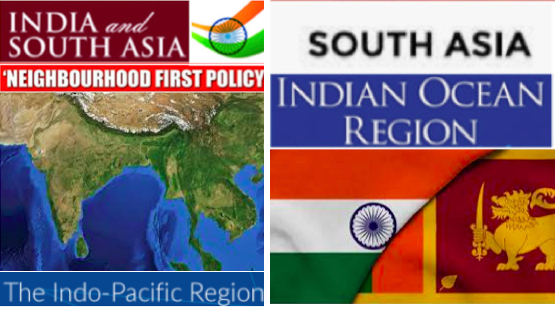
The strategic and geopolitical importance of the Indian Ocean region bordering the Indian peninsula is increasingly becoming recognized by a number of regional and international actors. The strategic interests of countries present in the Indian Ocean region bordering the Indian peninsula are convergent in several ways. However, the strategic interests of the different actors that are present in the Indian Ocean region bordering the Indian peninsula also overlap in several ways. Given these dynamics, the regional and extra-regional players in the Indian Ocean region are yet to come up with a regional or international arrangement designed to address the various security challenges in the Indian Ocean region bordering the Indian peninsula.
Consequently, it has become imperative for small island nations in the Indian Ocean region bordering the Indian peninsula to develop cooperative security strategies with key powers interested in the regions to pursue common policy goals and mitigate shared security risks. Although sub-regional arrangements such as the Indian Ocean Rim Association (IORA) and the Indian Ocean Rim-Association of Regional Cooperation (IOR-ARC) have been established to facilitate cooperation amongst countries of the Indian Ocean Rim , the focus has often been on economic, social, and environmental areas of cooperation. Therefore, cooperation on maritime security issues has mostly been achieved through bilateral arrangements. Given the various traditional and non-traditional security threats in the Indian Ocean rim, it becomes important for, India and Sri Lanka to take the necessary steps to improve maritime security in the Indian Ocean rim.
Importance of maritime domain for India and Sri Lanka.
Improving maritime security in the Indian Ocean rim is crucial for both India and Sri Lanka for securing the strategic interests of both countries and achieving sustainable growth and development on a national scale. A secure maritime environment not only ensures the security of the maritime territories of both countries but also protects Indo-Sri Lankan interests in their respective Exclusive Economic Zones. Moreover, a secure Indian Ocean rim also protects trading routes and lines of communications that go through the maritime territories of India and Sri Lanka.
Notably, India has a huge coastline and a large Exclusive Economic Zone that occupies a central position in the Indian Ocean rim. Sri Lanka, for its part, is strategically positioned in the Indian peninsula and located along the major trade /shipping routes and communication lines in the region. Since India and Sri Lanka share maritime borders in the Indian Ocean rim, the maritime diplomacy of both countries is an important facet of promoting maritime security in the Indian Ocean rim.
India’s approach to cooperation with Sri Lanka has primarily revolved around its strategic and security interests in the Indian Ocean region bordering the Indian peninsula.
The Indo Sri Lankan Maritime Diplomacy.
Given the increased presence of regional and international powers in the Indian Ocean region, Indian maritime diplomacy has mostly been focused on the development of regional maritime cooperation frameworks that emphasize maritime security. To this end, India has embarked on efforts to consolidate other littorals in the Indian peninsula with Sri Lanka emerging as a key partner. Its proximity to India, and its position as an island nation, provide Sri Lanka with strategic importance in maintaining political and economic interdependence. The Indo-Sri Lankan maritime cooperation framework has been achieved through various foreign policy initiatives and bilateral arrangements between the two countries. For example, the tripartite agreement signed between India, Sri Lanka, and the Maldives is a maritime security agreement that promotes cooperation on the exclusive economic zones of the three littorals and other joint maritime security initiatives.
The strategic maritime partnership between India and Sri Lanka has also been boosted by the India first security policy the “India first” security policy is committed to advancing India’s strategic interests in the Indian Ocean region bordering the Indian peninsula. India’s “Neighborhood policy” that aligns with the strategic security interests of Sri Lanka has also been a major boost to the Indo-Sri Lankan maritime diplomacy in the Indian Ocean region.
Way Forward: Balancing the Act with SAARC and Other South Asian Littorals.
Over the past few years, India’s foreign policy initiatives have strengthened its focus on South Asian geopolitics. The littorals of the South Asian region, particularly Sri Lanka, have been one of the top priorities of India. The role of India in SAARC is also of significance as it defines the dynamics of political will and interaction among the SAARC member states. Imagining a collective maritime security framework under the umbrella of the South Asian Association for Regional Cooperation ( SAARC ) is within the realms of imagination.
However, this can only be achieved if India takes an active front in demonstrating its political will to advance the maritime security interests of south Asian littorals. The increasing security concerns in this ocean, demand a greater emphasis to be laid on the maritime security agenda of the Indian Ocean region through regional and sub-regional platforms. Ultimately, this will see India emerge as a regional power that has expanded its maritime orbit of security in the Indian Ocean particularly with its southern neighbor Sri Lanka and other South Asian littorals.




